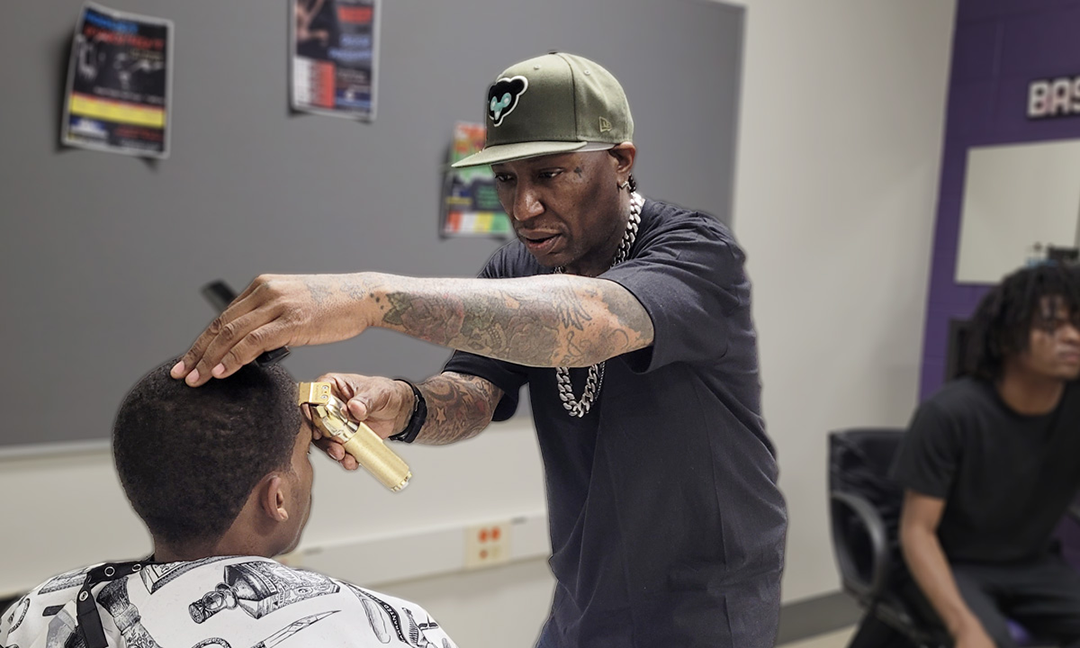The peer pressure question on this day continued to draw responses. Dae'den Thompson, 16, said he feels pressure when two friends have a conflict and he has to pick a side.
"Do you know how many beefs I've managed?" asks Mcatee, who has worked at multiple barber shops in the city. "The best thing to do is stay out of it. You say 'I got love for you' and 'I got love for you.' The best thing you can do is try to bridge it if you can."
He tells students that sometimes having friends talk, without others around that they have to show off for, can defuse a problem.
"Once they really get there and talk, man, a lot of that stuff don't be about nothing," he said. "They really don't want to beef."
"They do it when they get around a friend," a student said.
"That's it," said Mcatee. "That's the only reason that they do it."
For the next hour, the conversation bounces from cyberbullying to materialism, absentee fathers, letting slights go and not seeking conflicts over money or property damage that could lead to violence. At other points they joke about girls, about embarrassing moments or about going to prom as a group.

